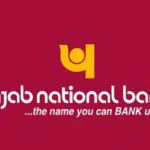KYC stands for “Know Your Customer.” It is a process used by banks to verify the identity of their customers. When you open a bank account, the bank asks you to provide documents like your ID, address proof, and sometimes a photo. This helps the bank know who you are and protect against fraud. KYC is important because it makes banking safer for everyone. In this article, we will talk about the advantages and disadvantages of Bank KYC.

Advantages of Bank KYC
KYC offers several benefits to both banks and customers. Let’s look at some of the key advantages:
- Prevents Fraud: KYC helps prevent fraud by ensuring that the person opening a bank account is real. It protects against fake accounts and illegal activities like money laundering.
- Safer Transactions: With KYC, banks can verify the identity of customers, making transactions more secure. This helps prevent misuse of your account.
- Better Services: When the bank knows more about you through KYC, it can offer better and more personalized services. For example, banks can suggest the best financial products based on your needs.
- Required by Law: KYC is mandatory by law. It helps banks follow government regulations, which ensures that the banking system remains safe and trustworthy.
- Digital KYC Options: Many banks now offer digital KYC, where you can complete the process online. This saves time and makes it easier for customers to open accounts from the comfort of their homes.
For more details about how KYC works and why it is important, you can visit sites like bankingstuffs.com, which provide useful information about banking processes.
Disadvantages of Bank KYC
While KYC is important, it also comes with some disadvantages. Let’s explore them:
- Time-Consuming: Completing the KYC process can take time, especially if you have to gather documents and visit the bank. It can be a hassle for some people.
- Privacy Concerns: Some people worry about sharing personal information like their ID and address with the bank. There is always a concern about how securely this information is stored.
- Document Rejections: Sometimes, banks reject documents due to small mistakes, like an incorrect address or an outdated ID. This can cause delays in opening your account.
- Not Always Convenient: For people living in remote areas, completing KYC might be difficult. They may have to travel to the bank or face delays due to slow postal services.
- Digital Divide: While digital KYC is convenient for many, some people who are not familiar with technology or lack internet access might find it hard to complete the KYC process online.
Comparison Table: Advantages vs. Disadvantages
| Advantages | Disadvantages |
|---|---|
| Prevents fraud | Time-consuming |
| Safer transactions | Privacy concerns |
| Better services | Document rejections |
| Required by law | Not always convenient |
| Digital KYC options | Digital divide |
Conclusion
KYC is an essential part of banking that helps protect both customers and banks. It prevents fraud, ensures safer transactions, and allows banks to follow important government regulations. However, it also has some downsides, such as being time-consuming and raising privacy concerns. Whether you are opening a new account or updating an old one, completing your KYC is necessary. As banking moves more towards digital solutions, the KYC process is becoming easier, but it’s important to understand both the advantages and disadvantages before starting the process.



















